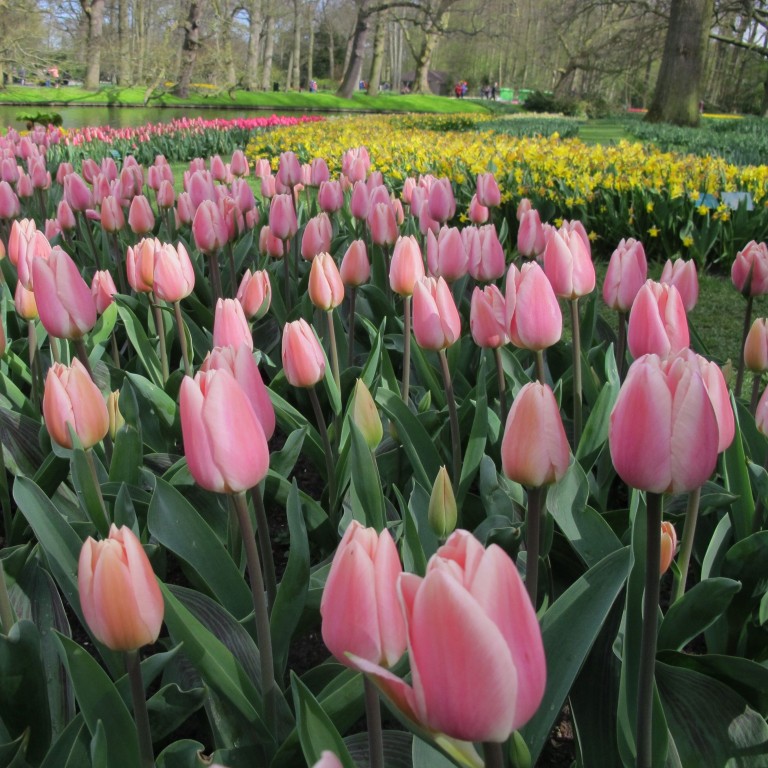
Pollen could play a role in reducing spread of coronavirus, Dutch study finds
- Researchers in the Netherlands say reported cases dropped when pollen count was high
- They say it ‘seems to create a bio-aerosol that lowers the reproduction number of flu-like viruses’
In the country known for its fields of tulips, researchers noticed that the number of Covid-19 cases dropped during the blooming season – but went up sharply afterwards.
A team from the Open University of the Netherlands suspected pollen could have something to do with it.
“Pollen is documented to be allergenic, it plays a role in immuno-activation and defence against respiratory viruses, and seems to create a bio-aerosol that lowers the reproduction number of flu-like viruses,” the researchers led by Martijn Hoogeveen wrote in a paper published in the journal Science of the Total Environment on Thursday.

Scientists are still investigating the influence of seasonal factors on the coronavirus, including temperature, humidity and solar radiation, but studies have produced conflicting results. An earlier study in China, for instance, found that in the north of the country the pandemic was worse when the humidity was low. But in some tropical areas, cases have increased during the wet season, when conditions are hot and humid.
In the Netherlands, the researchers found there was a decrease in flu-like symptoms being reported when there was a high pollen count in the period from 2016 to 2019.
A check of this year’s health records showed the pattern had not changed during the pandemic.
They suspected that pollen could be a factor in seasonal change and Covid-19 infections.
According to the study, when the pollen count passed 610 grains per cubic metre of air, cases started to drop. “The first Covid-19 cycle behaved according to pollen-flu seasonality, at least [it] does not break with it,” the paper said.

03:05
Global coronavirus cases pass 40 million mark as infection rates rebound in the US and Europe
In Europe, a number of countries are grappling with a resurgence in coronavirus cases as winter approaches. Some that did relatively well to contain the first wave earlier this year, such as the Czech Republic and Germany, are now reporting record numbers of daily infections.
In the northern hemisphere, the main flowering period is from April to September in most areas.
Scientists say some coronavirus vaccines under trial need screening for raising HIV risk
Commenting on the Dutch study, Wang Lie, a professor of immunology with Zhejiang University’s School of Basic Medical Sciences, said the immune system used separate signalling pathways for pollen and viruses, and it was still uncertain whether pollen could activate the body’s defences against the coronavirus. He added that more research was needed to prove the link.

